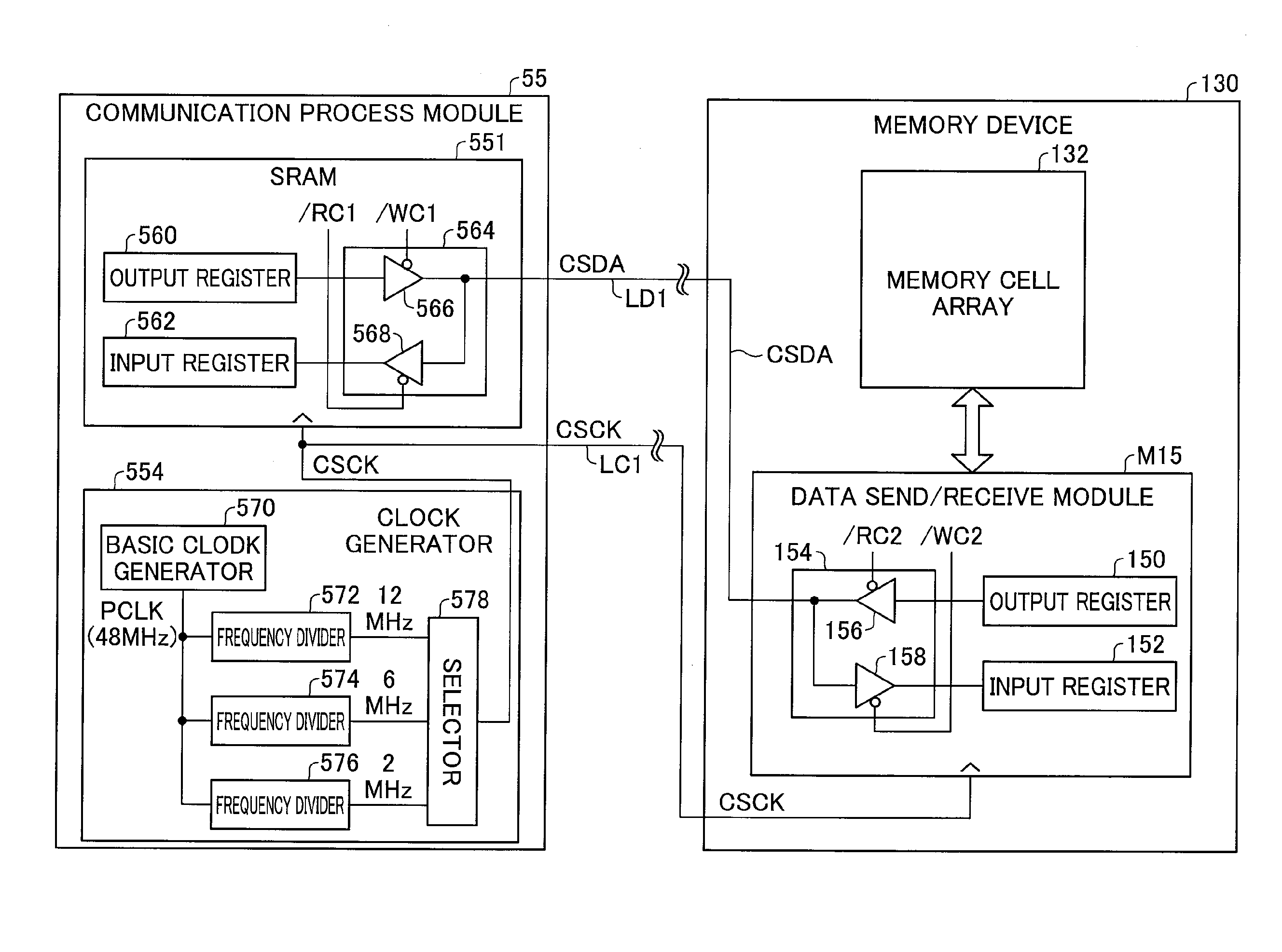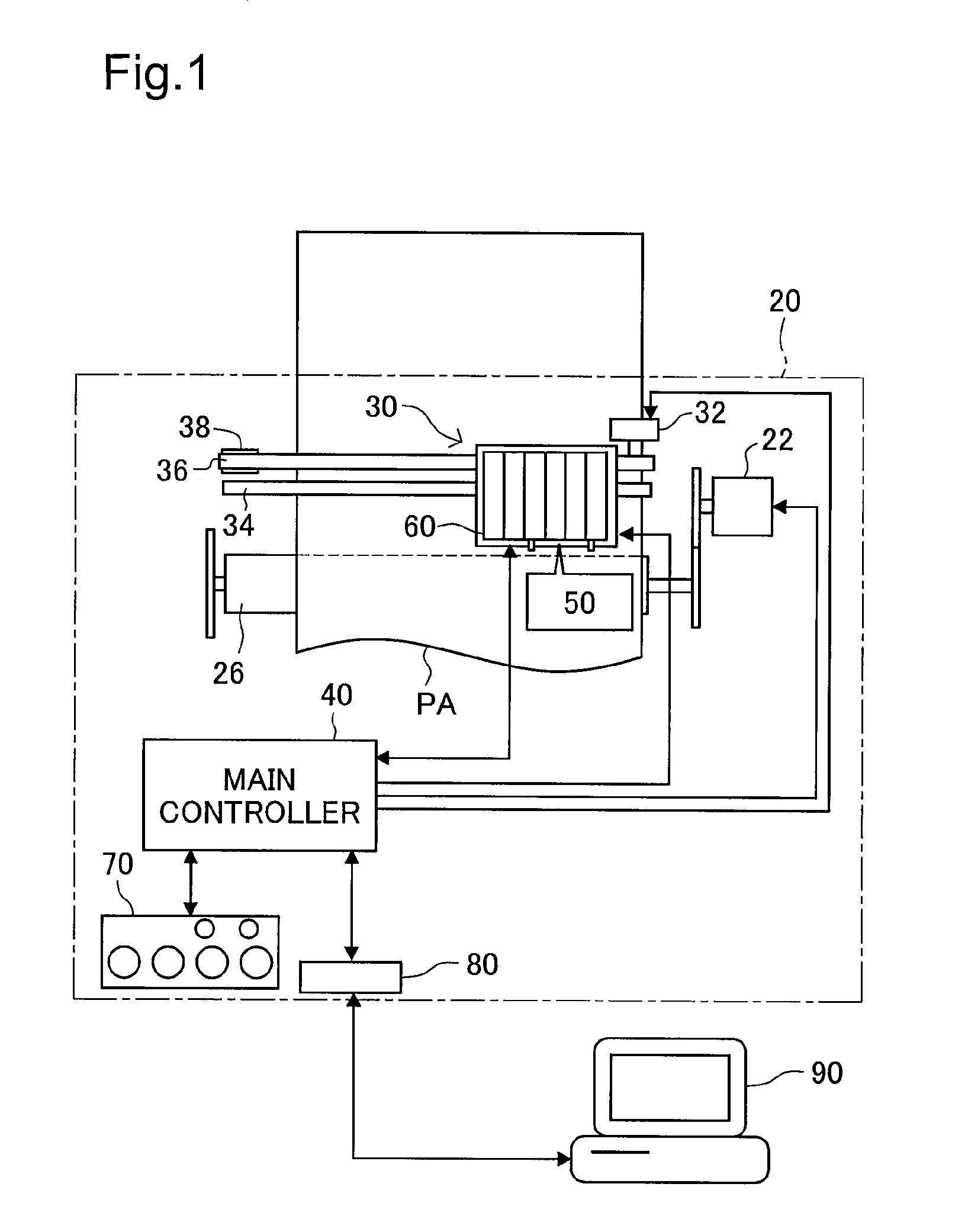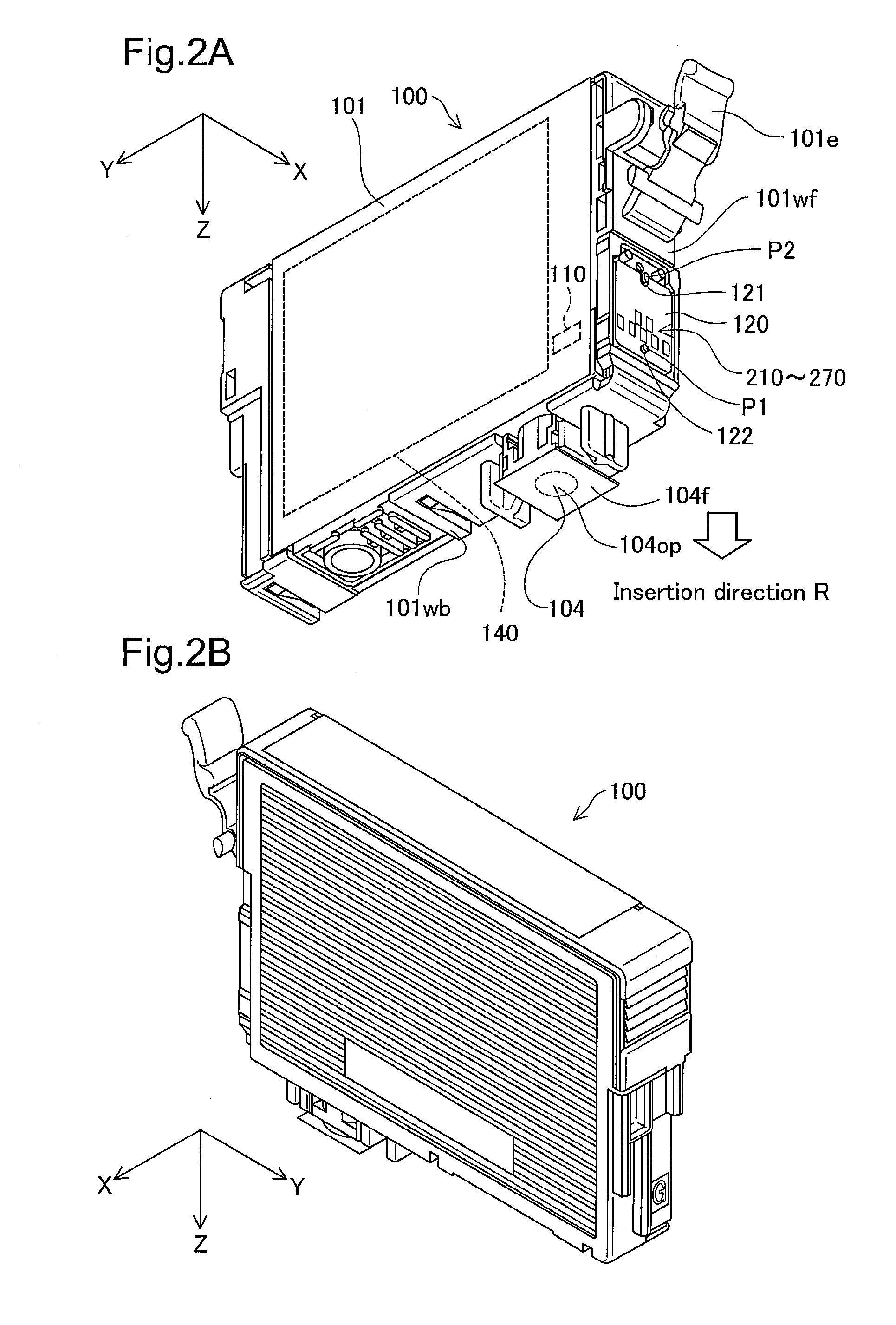System having a plurality of memory devices and data transfer method for the same
a technology of memory devices and data transfer methods, which is applied in the direction of digital storage, electric digital data processing, instruments, etc., can solve the problems of insufficient consideration of the dependability of communication communication faults may occur between the control unit provided, and the risk of memory contents errors such as memory errors, so as to achieve reliable high-speed data transfer and reduce consumption current
- Summary
- Abstract
- Description
- Claims
- Application Information
AI Technical Summary
Benefits of technology
Problems solved by technology
Method used
Image
Examples
embodiment 1
B. Embodiment 1
[0065]FIG. 6 is a block diagram depicting functional configuration of the main control circuit 40 and functional configuration of the sub-controller 50 and an ink cartridge 100 in Embodiment 1. The main controller 40 is provided with a control circuit 48, a drive signal generating circuit 42, and ROM, RAM, EEPROM or the like. Various programs for controlling the printer 20 are stored in the ROM. The control circuit 48 has a CPU (central processing unit), and performs control of the printer 20 as a whole in cooperation with the ROM, RAM, EEPROM or other memory. The control circuit 48 is provided as function blocks with a remaining ink level detection module M1, a memory access module M2, and a ink consumption estimation module M3. It should be noted that “modules” and “sections” are used as synonyms in the specification.
[0066]The remaining ink level detection module M1 controls the sub-controller 50 and the drive signal generating circuit 42, drives the sensor 110 of t...
embodiment 2
C. Embodiment 2
[0114]FIG. 12 is a block diagram depicting functional configuration of the main control circuit 40 and functional configuration of the sub-controller 50 and an ink cartridge 100 in Embodiment 2, and corresponds to FIG. 6 of Embodiment 1. The only difference from the circuit configuration depicted in FIG. 6 is that the memory control circuit 136 of the memory device 130 is additionally furnished with a copy data generation module M17, an inverted data generation module M18, and a data determination module M19; the configuration is otherwise the same as in FIG. 6. As will be discussed later, in Embodiment 2 inverted data and mirror data are sent in addition to the data proper (termed “original data”) as read data or write data. The copy data generation module M17 has the function of copying the original data to generate mirror data equal in size to the original data. The inverted data generation module M18 is adapted to invert the value of each bit of the original data ...
modified embodiment 1
[0224]In Embodiment 2 above, inverted data / Dn of the original data Dn is used as the related data for checking consistency with the original data Dn; however, other data having a prescribed logical relationship to the original data Dn may be used instead. As specific examples, related data such as the following may be used.
(1) A copy of the original data Dn
(2) Data resulting from addition of a prescribed value to the original data Dn
(3) Data resulting from subtraction of a prescribed value from the original data Dn
(4) Data resulting from multiplication of the original data Dn by a prescribed value
(5) Data resulting from a prescribed bit shift operation performed on the original data Dn
(6) Data resulting from a prescribed bit rotation operation performed on the original data Dn
[0225]Generally, it suffices for the original data Dn and the related data which is related to the original data Dn to have a prescribed logical relationship to one another, such that that the presence or lack...
PUM
 Login to View More
Login to View More Abstract
Description
Claims
Application Information
 Login to View More
Login to View More - R&D
- Intellectual Property
- Life Sciences
- Materials
- Tech Scout
- Unparalleled Data Quality
- Higher Quality Content
- 60% Fewer Hallucinations
Browse by: Latest US Patents, China's latest patents, Technical Efficacy Thesaurus, Application Domain, Technology Topic, Popular Technical Reports.
© 2025 PatSnap. All rights reserved.Legal|Privacy policy|Modern Slavery Act Transparency Statement|Sitemap|About US| Contact US: help@patsnap.com



